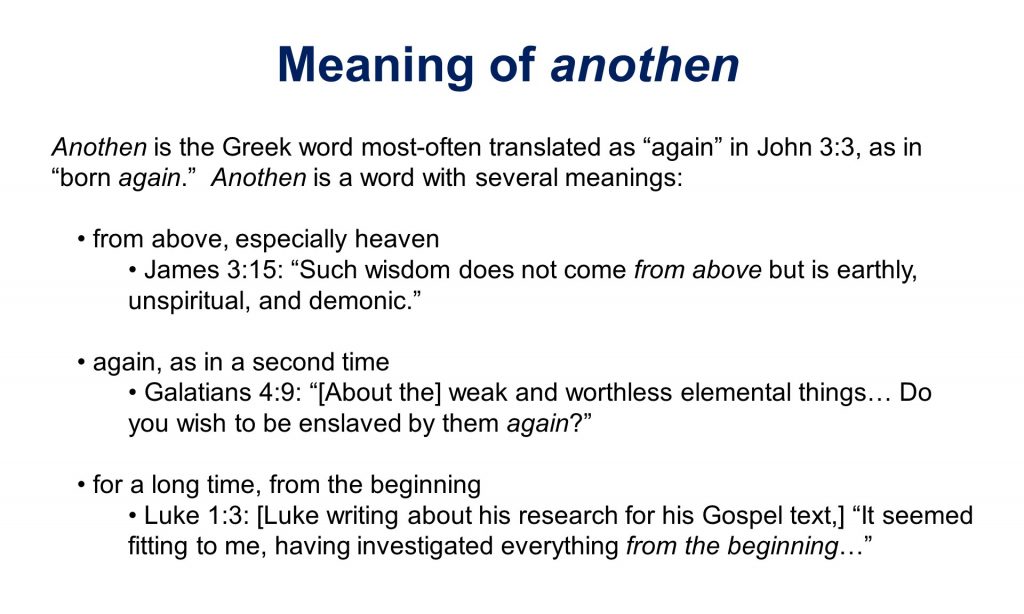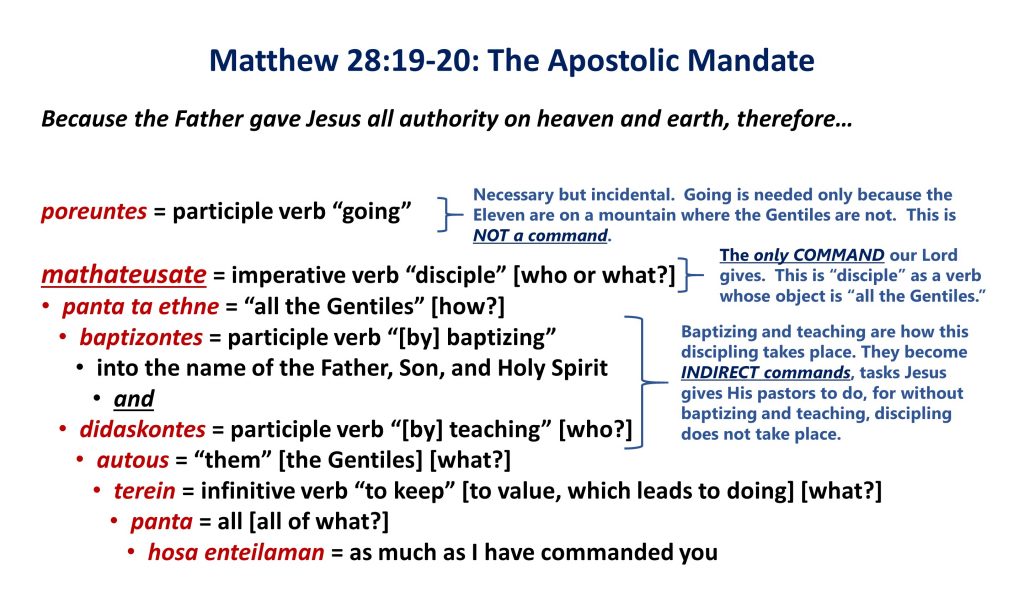 This is a new study series, which begins with Jesus establishing the New Covenant and finishing (we hope) with the Church recognizing and listing the texts of both the Old- and New-Testament Scriptures in 397 AD.
This is a new study series, which begins with Jesus establishing the New Covenant and finishing (we hope) with the Church recognizing and listing the texts of both the Old- and New-Testament Scriptures in 397 AD.
Jesus Establishes What Is to Take Place in His Church
The New Covenant
Ready to go to the cross, Jesus meets one last time with the Twelve to share the Passover meal. Though not yet official in becoming “sent ones” (“apostles”), St. Luke reveals they already are when it comes to the shepherding tasks Jesus will give them. “When the hour came [to celebrate the Passover], Jesus reclined at the table, and the apostles with him” (Luke 22:14).
To these Apostles, Jesus reveals the tasks He gives them in and for the Church.
While they were eating [the Passover meal], Jesus took bread, and after blessing it, he broke it, and gave it to the disciples and said, “Take [imperative], eat; this is my body.” Then he took a cup, and after giving thanks, he gave it to them, saying, “Drink [imperative] from it, all of you.” [Matthew 26:26-27]
- What does Jesus imply about Passover by celebrating the first Lord’s Supper with His disciples?
- What does Jesus say the disciples are receiving when they eat the bread?
- Who is supposed to welcomed to His Table? (who are the “you” to whom “all” applies)
- Jesus uses imperative, command verbs to eat and drink. What does this say about whether the Lord’s Supper is optional or not for His Church?
Jesus then tells His Apostles what one receives in the cup, and even what it is. “For this is my blood of the new covenant, which is poured out for the many [Luke “you,” plural] for the forgiveness of sins” (Matthew 26:28, Luke 22:20).
- By referring to the blood from the cup as the “new covenant,” what is Jesus now explicitly doing with the Old Covenant?
- Because Jesus gives the one drinking His blood, what does that person receives, which Jesus also explicitly states?
Jesus is being clear as to what He is doing—fulfilling the Old Covenant and ushering in the New. By using food, He is also relaying to us another plain and obvious fact.
- Without eating and drinking, what will happen to a person physically?
- What is the “object lesson” for someone spiritually who will not eat the food Jesus gives for the “forgiveness of sins”?
Without eating, one physically dies. So we are to understand without Jesus and His holy Meal, we will die spiritually. As one must also eat to live, so must one spiritually eat to be spiritually alive, which is to partake of the Supper.
“Discipling” by Baptizing and Teaching
Speaking to Nicodemus, Jesus speaks of what will soon be put into place: Baptism (John 3:3, 5) and His death on the cross for our salvation (John 3:16).
Read John 3:1-8
- Unless someone is born of water and Spirit, what will he not be part of? (vs. 5)
- How do we know Nicodemus is thinking of being born a second time, but Jesus means being born from above? (vs.3, 6-7)
- If someone is born from above in baptism, what does that mean?
Read Matthew 28:16-20
- Who are “the eleven”?
- What does Jesus command them to do and how? (The Greek only has one command.)
- Based on where the eleven are, why do they need to “go”?
Jesus commands the Church’ first pastors, His Apostles, to “disciple” by baptizing and teaching.
Read Colossians 2:11-14
- What does baptism fulfill and supersede?
- As circumcision brought one into the Old Covenant, what does baptism do in the New?
Forgiving and Retaining Sins
Read John 20:19-23
- Whom does Jesus meet on Easter evening?
- What does He empower them to do?
- How?
“forgive”: Greek, aphiami. This is letting go of something or leaving something behind. Forgiveness is the sins of someone being left behind, no longer stuck to him.
“withhold forgiveness”: Greek, krateo. This is not withholding something from someone but causing something to remain with him. Forgiveness is not withheld, instead, sins are retained, that is, they are still stuck on the person.
- Discuss: why would Jesus authorize his pastors to retain sins? What value does it bring to someone?
Preaching
Jesus again appears to His disciples/Apostles.
Read Luke 24:44-46
- What did Jesus bring His Apostles to understand?
- What were the “Scriptures” Jesus used?
Read Luke 24:47
- Based on “Scriptures,” the Old Testament, what did Jesus conclude was to be done in His name?
- What didn’t Jesus need to command preaching? Is it not important?
- What is the pastor supposed to preach, which may or may not match what people want (vs. 47)?
Before mentioning preaching in the passive voice, Jesus “opened their minds to understand the Scriptures [the Old Testament].” In doing so, He taught them how the Scriptures prophesied of Him and how they were to deliver His saving work to “all nations [ethna, Gentiles].” In other words, Jesus didn’t need to command preaching, for God’s directive continued from the Old Covenant.
Notice our Lord’s description of the Old Testament: The Law of Moses, the Prophets, and the Psalms.
- In the Old Covenant, God promised Moses, “Now therefore go, and I will be with your mouth and teach you what you shall speak” (Exodus 4:12).
- The Lord told Jeremiah, “I have put my words in your mouth” (Jeremiah 1:9).
- God commissioned Ezekiel, “You must speak my words to them” (Ezekiel 2:7).
- 1 Chronicles 16:23: “Sing to the Lord, all the earth! Tell [Hebrew, basar, imperative; LXX, anaggeilate, imperative] of his salvation from day to day.”
- Isaiah 12:4: “Give thanks to the Lord, call upon his name, make known [Hebrew, yada, imperative; LXX, anaggeilate, imperative] his deeds among the peoples, proclaim [Hebrews, zakar, imperative; LXX, mimnaskethe, imperative] that his name is exalted.”
- Psalm 96:2: “Sing to the Lord, bless his name; tell [Hebrew, basar, imperative; LXX, euaggizesthe, imperative] of his salvation from day to day.”
Because preaching was commanded in the Old Covenant and was to continue into the New Covenant, Jesus didn’t need to give a new mandate. Instead, He gives preaching it’s New-Covenant focus, with God’s decree from before still in effect.
Link to the next Lesson in this series.






